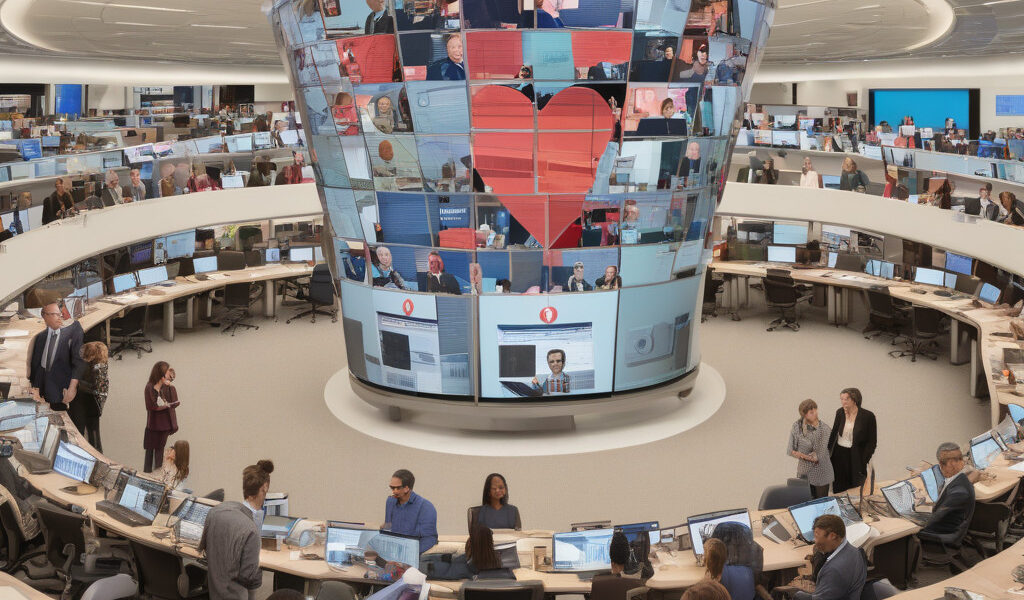The Role of Media in Democracy
In Europe, the power of the media to shape democracy and provoke change has once again come to the forefront. Recent protests have been spurred by Correctiv’s report on far-right extremism, highlighting the significant impact that media outlets can have on society. This serves as a stark reminder of the crucial role that the media plays in upholding democratic values and holding those in power accountable.
At the Ditchley Foundation, a renowned center for international diplomacy and security, discussions are unfolding on the evolving role of journalism in the face of challenges posed by artificial intelligence (AI) and technological advancements. The intersection of media and democracy has never been more complex, with the rapid pace of technological innovation presenting both opportunities and threats to the integrity of the information ecosystem.
In an era where fake news and disinformation can spread like wildfire across digital platforms, the role of traditional media in upholding democratic principles has become increasingly vital. Quality journalism serves as a safeguard against the proliferation of falsehoods, providing citizens with reliable information to make informed decisions and participate meaningfully in the democratic process.
The recent guest essay titled “The Role of Media in Democracy,” published by the Center for News, Technology & Innovation, delves into the multifaceted ways in which media influences democracy. From investigative reporting that exposes corruption and abuse of power to providing a platform for diverse voices and opinions, the media acts as a cornerstone of democracy by fostering transparency, accountability, and civic engagement.
In the digital age, the democratization of information through online platforms and social media has fundamentally transformed the media landscape. While these technological advancements have expanded access to information and enabled new forms of citizen journalism, they have also given rise to challenges such as echo chambers, filter bubbles, and the spread of misinformation.
To combat these challenges and uphold the principles of democracy, media organizations must adapt to the digital age by embracing technological innovations while staying true to their core values of accuracy, impartiality, and public service. By leveraging AI and data analytics, media outlets can enhance their reporting capabilities, personalize content for audiences, and improve fact-checking processes to ensure the veracity of information shared.
Moreover, collaborations between media organizations, tech companies, and civil society are essential to promote media literacy, combat disinformation, and safeguard the integrity of the democratic process. Initiatives such as media literacy programs, fact-checking partnerships, and ethical guidelines for reporting can help build trust between media outlets and their audiences, fostering a more informed and engaged citizenry.
As we navigate the complex interplay between media and democracy in the digital age, it is imperative to recognize the power of the media to shape public discourse, influence political outcomes, and drive social change. By upholding journalistic standards, promoting transparency, and embracing technological advancements responsibly, the media can continue to fulfill its essential role as the watchdog of democracy.
#MediaDemocracy #JournalismEthics #DigitalTransformation #DemocracyInAction #TechnologicalAdvancements












